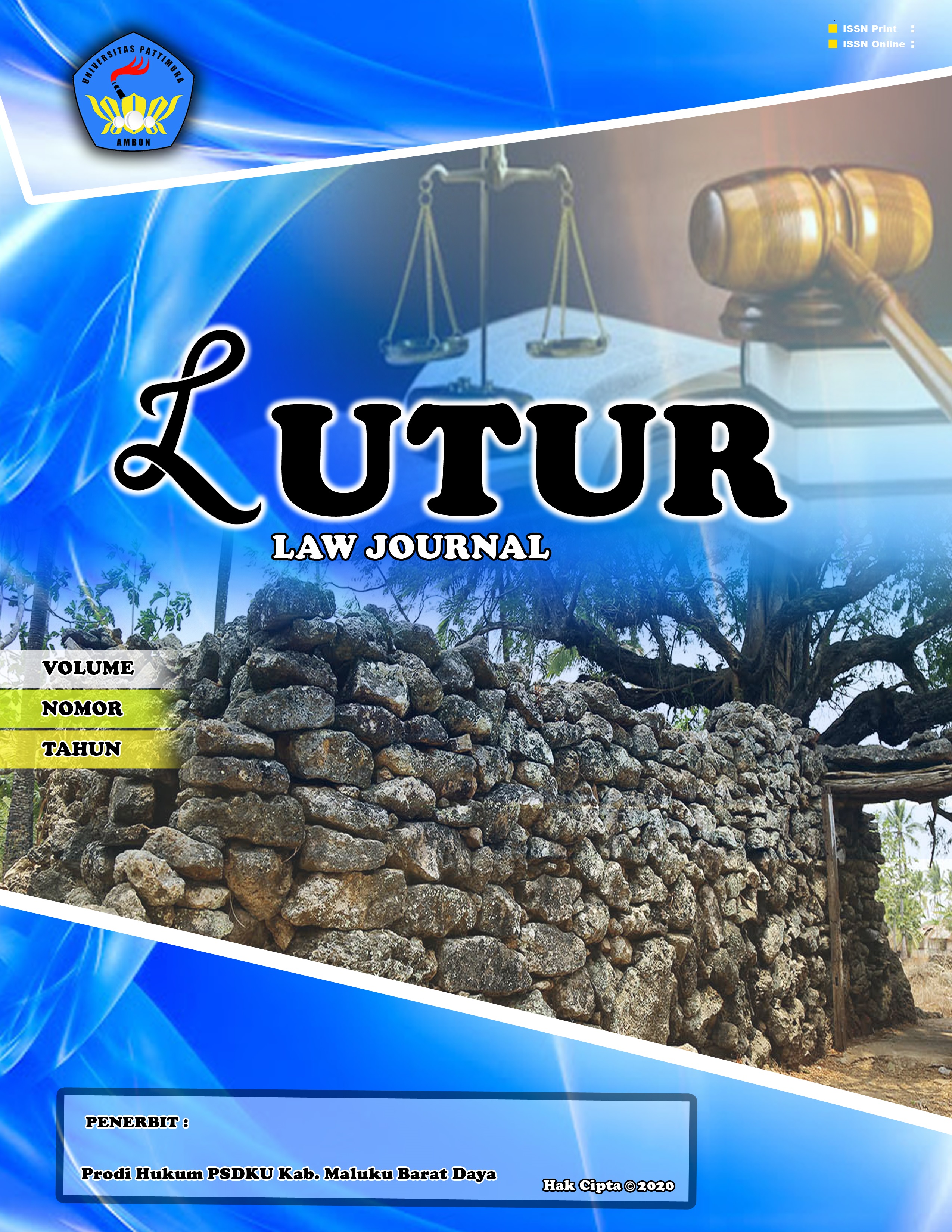Pengucapan Ikrar Talak Tanpa Kehadiran Istri Di Pengadilan Agama
Abstract
Divorce Case No. 326/Pdt.G/2022/PA.AB in which the Respondent (Wife) has been properly and officially summoned by the court, but the Respondent (Wife) never attended and did not send her attorney to represent her in the trial process until the Declaration of Divorce by the Applicant (Husband), however, the panel of judges still allowed the Applicant (Husband) to pronounce the Declaration of Divorce after the verdict of the Divorce case was issued, then a Divorce Certificate was issued which clearly explained the condition of the Respondent (Wife) at the time of the Declaration of Divorce. based on the Compilation of Islamic Law (KHI) Article 149 is obliged to provide maintenance to the Respondent (his wife), or at least the Respondent (his wife) must be present to ask for maintenance in accordance with KHI Article 119 Paragraph 2 Letter b, and other things that need to be considered by the panel of judges as always stated in the Divorce Certificate, namely, seeing the status of the wife in a state of purity, menstruation or in a state of pregnancy or not at the time the divorce vow was pronounced according to Article 122 of the KHI. The type of research used in this study is normative juridical. The results of this study are that according to Islamic law, the applicant in the divorce case of the divorce vow number 326 / Pdt.G / 2022 / PA.AB has met the requirements required in Islamic law to pronounce the divorce vow. However, because the wife was not present in the trial, the judge should not have fulfilled the legal requirements to allow the applicant to pronounce the divorce vow because Article 119 Paragraph 2 of the KHI point b regarding the divorce vow with ransom or khuluk (iddah and mut'ah maintenance) and the wife's condition which must be stated in the divorce certificate according to Article 122 of the KHI have not been fulfilled, so that the pronouncement of the divorce vow in the case is considered invalid according to law. That in order to protect the wife's rights legally and ensure the wife's condition as an additional requirement for the validity of the divorce certificate, the wife's presence in court is a significant factor for the court in carrying out its legal process fairly and ensuring that the decision taken not only takes into account the provisions of religious law, but also takes into account aspects of humanity and social justice.
Downloads
References
Artikel Jurnal
Angga, La Ode, Dkk., “Implementasi Alimentasi Anak Dalam Suatu Perceraian (Studi Kasus Putusan Pengadilan Agama Ambon Nomor: 312/Pdt.G/2018/Pa Ambon” TATOHI Jurnal Ilmu Hukum, No. 1. Vol. 1. 2021.
Barzah Latupono , “Pertanggungjawaban Hukum Ayah Terhadap Anak Setelah Terjadinya Perceraian” Jurnal Sasi No. 2. Vol. 26. 2020.
Buku
Abi Daud Sulaiman, Sunan Abi Daud, Dar al-Kutub al Ilmiyah, Beirut, 1996.
Johnny Ibrahim, Teori & Metodologi Penelitian Hukum Normatif, Cetakan kedua, Bayumedia Publishing, Malang, 2006.
Muhammad bin Jarir bin Yazid al-Thabary, Tafsir al-Thabary (Beirut: Dar al-Fikr, 1405 H, XI/ 116.
Muhammad Jawad Mughniyah, Fiqih Lima Mazhab terjemahan dari Al-Fiqh “ala Madzahib Al-Khamsah, Basrie Press, Jakarta , 1994.
Yayan Sopyan, Islam Negara (transformasi Hukum Perkawinan Islam dalam Hukum Nasional) Cet. 1, UIN Syarif Hidayatullah, Jakarta, 2002.
Copyright (c) 2024 Muhammad Juhasa Jamaludin, La Ode Angga, Syadzwina Hindun Nabila (Author)

This work is licensed under a Creative Commons Attribution-NonCommercial 4.0 International License.
Authors who publish their manuscripts in this Journal agree to the following conditions:
- The copyright in each article belongs to the author, as well as the right to patent.
- Authors are able to enter into separate, additional contractual arrangements for the non-exclusive distribution of the journal's published version of the work (e.g., post it to an institutional repository or publish it in a book), with an acknowledgment of its initial publication in this journal.
- Authors are permitted and encouraged to post their work online (e.g., in institutional repositories or on their website) prior to and during the submission process, as it can lead to productive exchanges, as well as earlier and greater citation of published work.
- Authors have the right to self-archiving of the article (Author Self-Archiving Policy)














